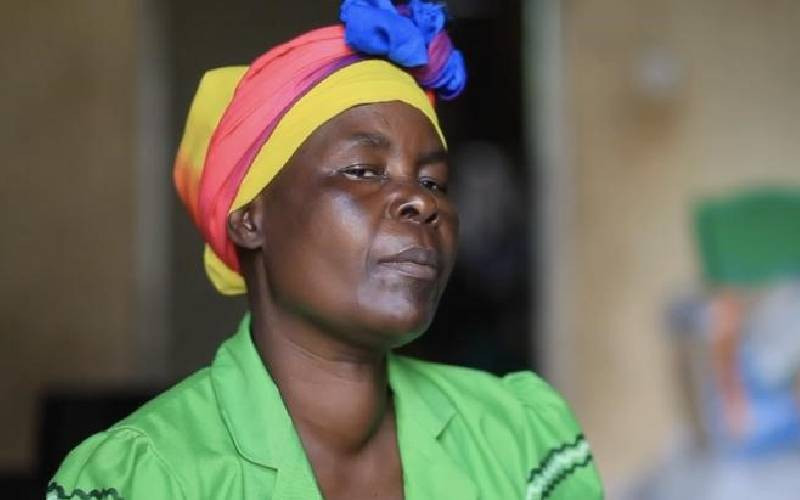On Friday April 12, while travelling from the hospital to his home in New York City, Prof Aristide Zolberg, the well-known Africanist and migration scholar, died after a long battle with cancer. Zolberg is well known for his pioneering book on the politics of Ivory Coast, which was entitled One-Party Government in the Ivory Coast, published by Princeton University in 1964. Soon after that he published a study on the politics in West African states entitled Creating Political Order: The Party-States of West Africa.
Zolberg was born in Brussels in 1931. In 1948, at the age of 16, he emigrated to the US, having survived the holocaust. It is in the US where he started a long journey towards a commitment to scholarship that landed him at the University of Chicago to study Political Science and receive his doctorate in 1961 with a dissertation on politics in the Ivory Coast. He became professor and chair of Political Science at the same university, rubbing shoulders with well-known colleagues like Kenneth Prewitt, Adam Przeworski, Phillip Schmitter, David Greenstone, Joseph Crospy, Leonard Binder and many others.
I first met Ary when I joined the University of Chicago as a graduate student in Political Science in October 1971. He was then chairman of the department and had started to move gradually out of African studies into social theory and eventually into the politics of migration. But discussions with him led me to get very interested in Ivorian politics, particularly that aspect which brought together landed interests with the use of state power for capital accumulation. I saw several similarities between Kenya and Ivory Coast and eventually decided to do my dissertation on “the political economy of coffee production in the Ivory Coast” with Ary, Ken Prewitt, Adam Przeworsky and Phil Schmitter, all in my dissertation committee.
I remember Ary reading the first draft of my dissertation and tearing it to pieces page by page. But that was the best thing that ever happened to me. As he tore the pages, he also gave tremendous insights into what he thought I intended to say. The result was that I rewrote the thesis with ease and comfort, assured that every chapter was received readily and warmly by all the members of the committee. That was way back in the summer of 1976. The generation of American scholars who wrote extensively on Africa were products of the school of comparative politics championed by such scholars as David Apter, Gabriel Almond, Bingham Powell and Sydney Verba.
By the end of the 1960s their pens had more or less dried on anything to do with Africa and a generation of African scholars and their students published a whole series of studies on African politics from diverse social science perspectives. In Nigeria, the late Claude Ake still remains a towering figure, so are Okwodiba Noli, Adele Jinadu, Adebayo Olukoshi and many others. Now resident in Nigeria, the Ugandan political scientist and poet, Okello Oculli, undertook some very interesting work with Ken Prewitt on “Education and Political Values”, a subject that needs revival today as Africa rethinks the whole project of nation building following the disintegration of many presumed nations in the wake of internal conflicts and failed authoritarian governments.
The late Archibold Mafeje, though born in apartheid South Africa, was an African in all perspectives. Having done research in Uganda where some of his early publications shaped anthropological scholarship on the continent, Archie moved to live and work in Tanzania and Egypt for many years. When one begins to remember those who shaped us as social scientists in Africa, the name of Archie Mafeje will come up as one who spurred with such scholars as Zolberg in the ring where ideas battled on understanding African social phenomena.
In Eastern Africa, the products of social science education dominated in the 1960s by American Behavioral Social Scientists are happily still around. They include Professors Ali Mazrui, John Okumu, Mike Chege and Shem Migot-Adhola, Abdala Bujra, Ahmed Mohiddin, Issa Shivji and Mahmood Mamdani.
The Luo people say that when one dies, those left behind go to the funeral not to “cry the dead” but to cry for those who are still living. Thus when I visited Ary’s wife Vera in their apartment on Lafayette Street in New York City, I encountered friends and colleagues who had gathered in the apartment to “cry her and her family”. Mine was a much wider mission: to cry Vera and her family and that much wider community of African scholars Ary had come in contact with personally or in his scholarly work. In solidarity we express our sympathy for the family at this difficult time.
Some of Ary’s major works since he moved to the New School for Social Research in New York are Global Migrants, Global Refugees, (2001); Shadows Over Europe (2002); A Nation by Design (2006); and How Many Exceptionalisms? Exploration in Comparative Macro analysis (2008). There is no doubt that Ary has gone at a time when the debate on migration policy in the US is definitely moving towards an even more controversial engagement. The issue is bound to feature prominently in Congress and will dominate the coming presidential elections and the post-Obama era.
It is interesting that Ary moved out of African studies and settled on studies on migration and refugees. Part of the explanation can be found in his childhood experience, having become an immigrant into the US at the age of 16. But the other reason could be his own ability to sense that migration was bound to become an increasingly important issue in global politics, calling for international conventions and national policies to manage the movements of people and protect the rights of immigrants wherever they settled.
 The Standard Group Plc is a
multi-media organization with investments in media platforms spanning newspaper
print operations, television, radio broadcasting, digital and online services. The
Standard Group is recognized as a leading multi-media house in Kenya with a key
influence in matters of national and international interest.
The Standard Group Plc is a
multi-media organization with investments in media platforms spanning newspaper
print operations, television, radio broadcasting, digital and online services. The
Standard Group is recognized as a leading multi-media house in Kenya with a key
influence in matters of national and international interest.
 The Standard Group Plc is a
multi-media organization with investments in media platforms spanning newspaper
print operations, television, radio broadcasting, digital and online services. The
Standard Group is recognized as a leading multi-media house in Kenya with a key
influence in matters of national and international interest.
The Standard Group Plc is a
multi-media organization with investments in media platforms spanning newspaper
print operations, television, radio broadcasting, digital and online services. The
Standard Group is recognized as a leading multi-media house in Kenya with a key
influence in matters of national and international interest.








